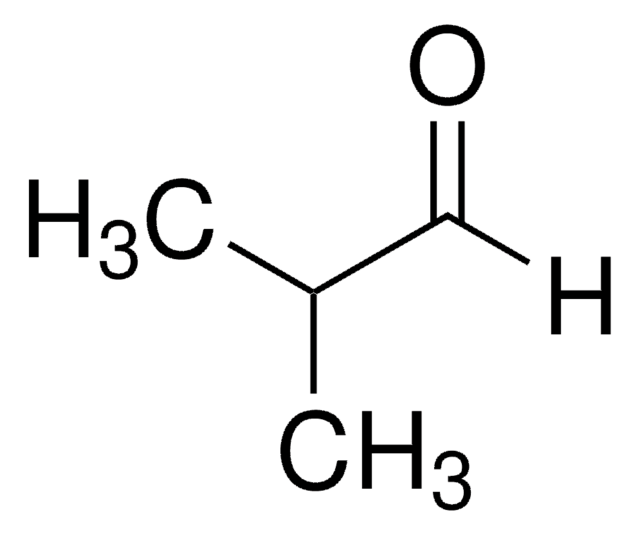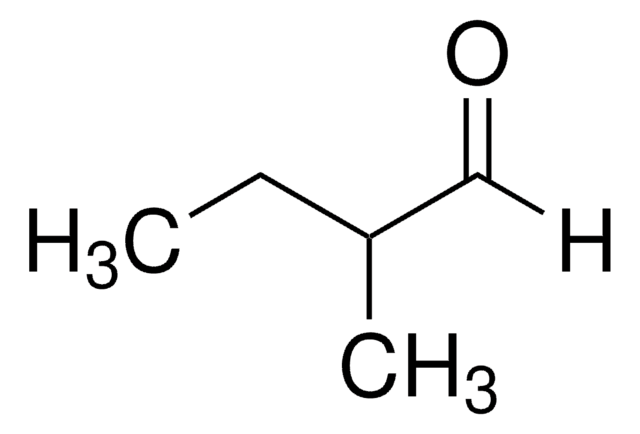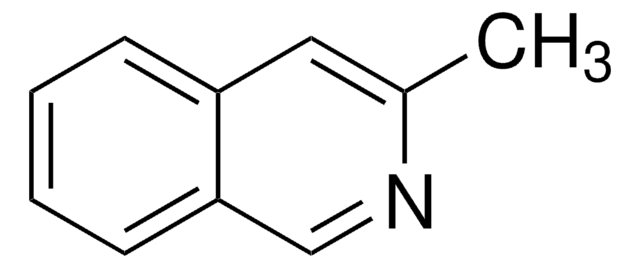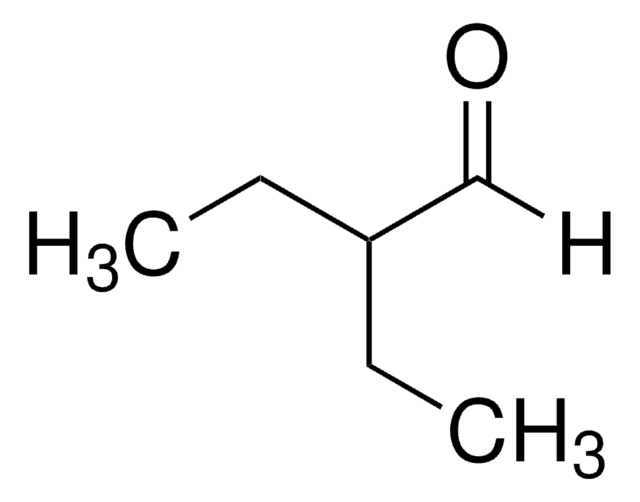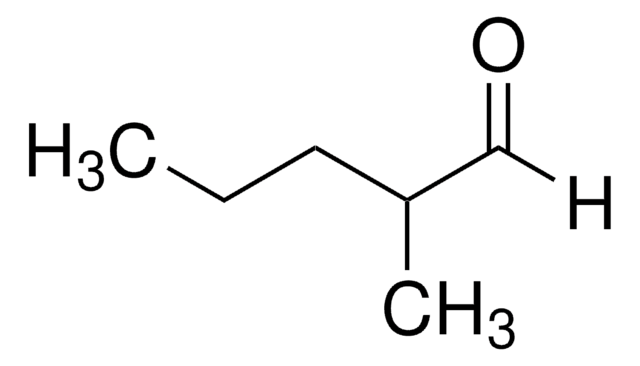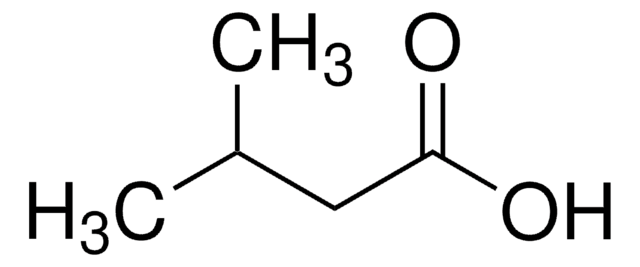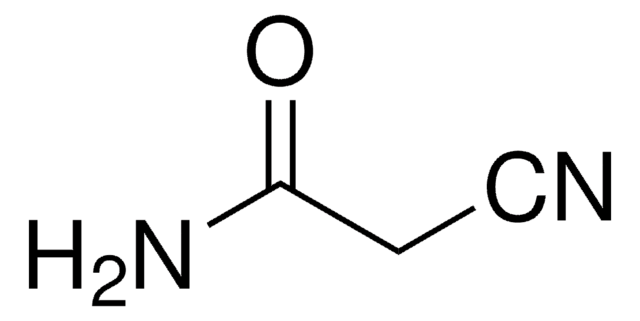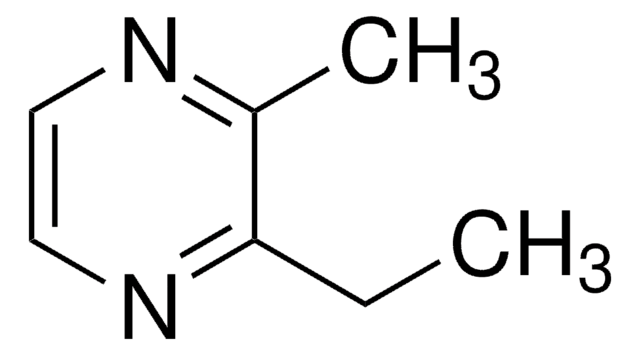146455
Isovaleraldehyde
97%
Synonym(s):
3-Methylbutanal, 3-Methylbutyraldehyde, NSC 404119
About This Item
Recommended Products
vapor density
2.96 (vs air)
Quality Level
vapor pressure
30 mmHg ( 20 °C)
assay
97%
form
liquid
autoignition temp.
464 °F
refractive index
n20/D 1.388 (lit.)
bp
90 °C (lit.)
solubility
alcohol: miscible
diethyl ether: miscible
water: slightly soluble
density
0.803 g/mL at 25 °C (lit.)
organoleptic
pungent
storage temp.
2-8°C
SMILES string
[H]C(=O)CC(C)C
InChI
1S/C5H10O/c1-5(2)3-4-6/h4-5H,3H2,1-2H3
InChI key
YGHRJJRRZDOVPD-UHFFFAOYSA-N
Looking for similar products? Visit Product Comparison Guide
General description
Isovaleraldehyde is an attractant and its interaction with zoospores of the fungus Phytophthora palmivora has been studied by binding techniques.
Application
signalword
Danger
hcodes
Hazard Classifications
Aquatic Chronic 2 - Eye Irrit. 2 - Flam. Liq. 2 - Skin Sens. 1 - STOT SE 3
target_organs
Respiratory system
Storage Class
3 - Flammable liquids
wgk_germany
WGK 2
flash_point_f
32.9 °F - closed cup
flash_point_c
0.5 °C - closed cup
ppe
Eyeshields, Faceshields, Gloves, type ABEK (EN14387) respirator filter
Choose from one of the most recent versions:
Already Own This Product?
Find documentation for the products that you have recently purchased in the Document Library.
Customers Also Viewed
Protocols
-Tolualdehyde; Valeraldehyde; Isovaleraldehyde
Our team of scientists has experience in all areas of research including Life Science, Material Science, Chemical Synthesis, Chromatography, Analytical and many others.
Contact Technical Service